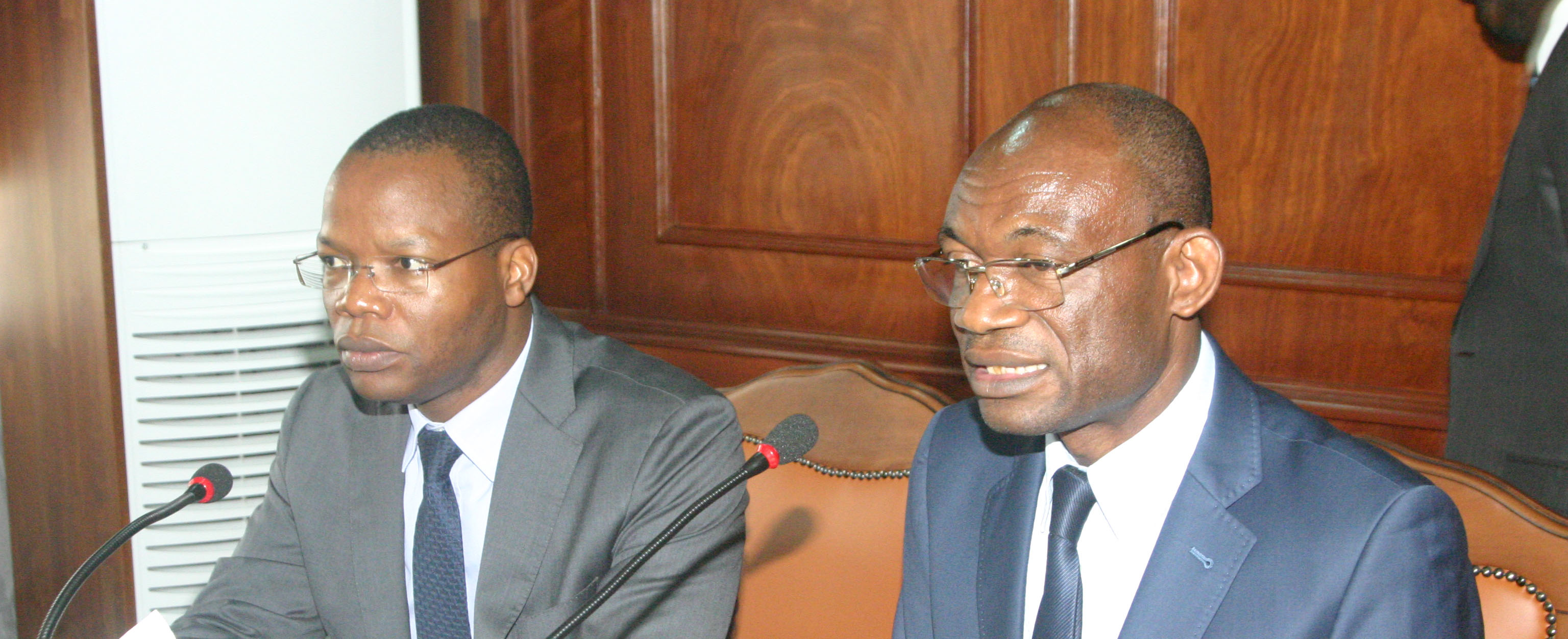Publié le : 5/06/18 3:36 PM

The second meeting of the joint collaboration committee between the General Budget Directorate and the General Tax Directorate was held on Tuesday 17 October 2017 in the conference room on the 4th floor of the new Ministry of Finance building. It was part of the continuum of the first, which took place last July on the premises of the Directorate General of Taxes. This collaboration platform is a joint initiative of Messrs Cyrill EDOU ALO’O and Modeste MOPA FATOING respectively Director General of Budget and Director General of Taxes who have committed themselves to implement a synergy of actions for a better contribution of their administrations to the optimization of the performance of the Ministry of Finance.
The collaborative option
At the origin of this platform, the leaders of these two prestigious financial institutions perceived the need to strengthen their performance in a context marked by a contraction of tax revenues and by the imperative of reducing the State’s way of life which imposes, without further delay, the adoption of a collaborative and dialogical framework for a better management of public resources. Moreover, the constant search for strategies likely to allow the successful implementation of the recent measures taken by the Minister of Finance for the optimization of taxes and duties on the execution of the State budget constitutes one of the objectives of the creation of this participatory framework.
During the first meeting in July, work focused on two priority areas; in particular, measures planned or in progress, relating to all expenditure in the budget nomenclature concerned by the application of the instruction instituting the liquidation and the commitment upstream, taxes and levies due on decisions to unblock and the formalisation of a protocol for collaboration and exchange of information between the two administrations. Recommendations had been formulated and accompanied by a matrix for monitoring and implementing activities at the end of this first meeting.
A dynamic framework for reflection and a need to strengthen staff capacities
During the working session on 17 October, under the leadership of the two Directors-General, the participants, consisting of the main officials of the two administrations, first combed through the summary table of the nature of expenditure on decisions to release funds subject to withholding tax. The aim of this work carried out by the joint technical team is to reduce the loss of tax revenue necessary for proper implementation of the budget.
Secondly, discussions focused on the examination of the draft protocol to formalise the collaboration agreement between the two Directorates-General. Far from the announcement effects, this project is the concrete translation of the « modus operandi » that the DGI and the DGB wish to achieve in the near future. What is apparent from this document, which still needs to be enriched in accordance with the wishes of the two officials, is the need to share and exchange budgetary, accounting and tax information in a synergistic spirit that has prevailed little in the past.
The declared will of these administrations is to circumscribe information asymmetries, to contain methodological dissonances in the treatment of transversal problems.
In the same vein, the DGB and the DGI also aim to increase the skills of their staff by organizing thematic seminars on the needs expressed by each of these administrations. A training schedule will be developed in the coming weeks to initiate this action, to which the two senior officials intend to place particular emphasis.
An initiative to be reinforced by the DGB
To conclude, without a blow, we can admit that the time when each of the MINFI administrations played its partition without taking into account the acoustics of its action is over. In this new symphony of collaboration initiated by the tax base administrations, the DGB is in its turn committed to building the bridge of mutualization of reflection and synergy of action with the other administrations in particular, the DGD and the DGTCFM with the effect of contributing to the optimization of the performance of the Ministry of Finance and thus to the achievement of Cameroon’s growth objectives. This collaborative dynamic reflects the DGB’s projection of a modern approach designed to improve transparency in budget execution at a time when budgetary discipline is a categorical imperative.